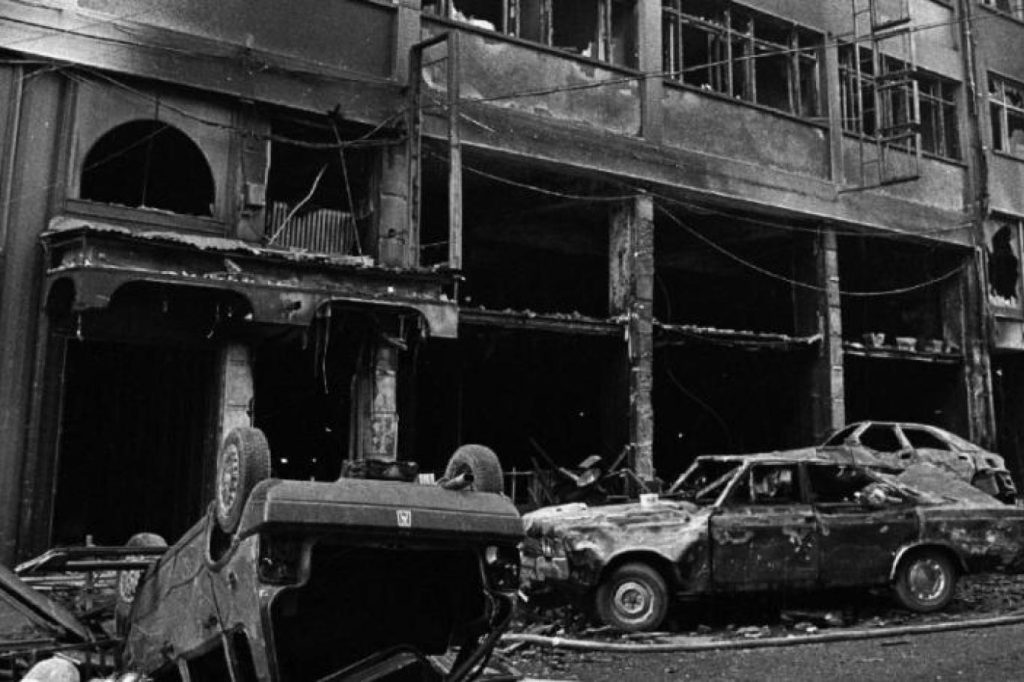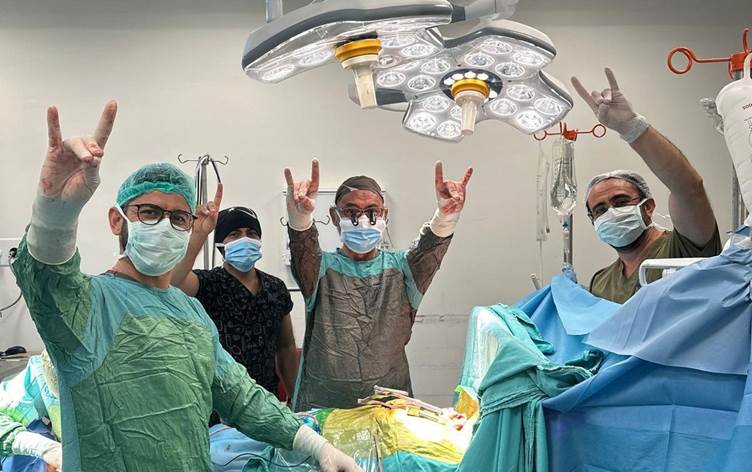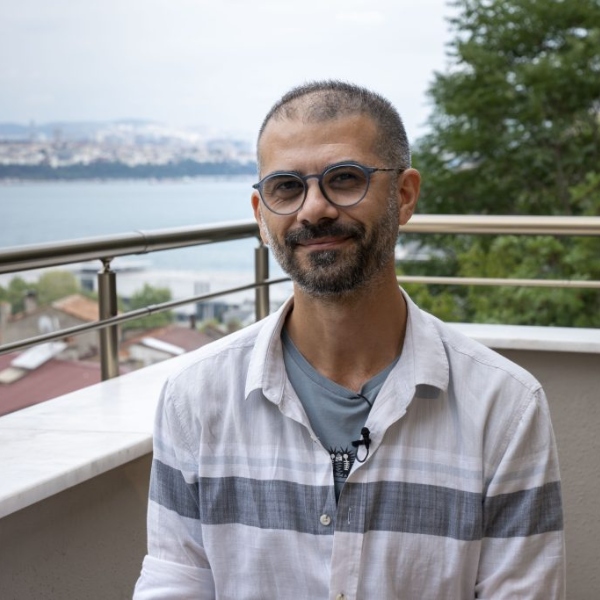Is there another country in the world whose agenda exhausts and batters its people as much as Turkey’s? What happens over the course of a year in an average country around the world often happens here in just a few days. As a result, there is no opportunity to properly assess, discuss, or digest anything – everything passes by, everything is quickly consumed and forgotten after all. The agenda is voracious, insatiable. After all, a new event, a new scandal, a new shocking story will come up from behind to satisfy the appetites of the “Breaking News” enthusiasts, albeit temporarily. Political quarrels, human rights violations, murders, accident-like-murders resulting from negligence, an increasingly impoverished populace, and a daily life that is increasingly dry and suffocating all hover over us like a curse, making life unbearable in this part of the world. To withstand all this requires superhuman effort. A pinch of apathy brought on by habit can also help thicken your skin, of course!
If we just look at what happened in the first week of this month, July 2024, we can better understand what I am talking about. July 2 was the anniversary of a massacre in the city of Sivas in 1992, when an untethered crowd set fire to a hotel and killed 33 people –writers, poets and singers– who were summoned to attend a cultural festival. The ostensible reason for the crowd’s ferocity was their reaction to the anti-religious views of author Aziz Nesin, one of the festival participants, but the way they expressed their reactions and the way state officials merely watched what was happening was extremely familiar to those familiar with Turkey’s history of violence. This was also a new and painful episode in the historical violence against the country’s Alevi minority. On the same day as the anniversary, after the news spread that an adult had molested a child in the city of Kayseri, attacks took place against Syrian refugees all over the country, especially in Kayseri, where the incident took place, many workplaces and houses were burned down, people were beaten in the middle of the street, and finally a child worker was killed in Antalya. The targeting of Syrians was due to the fact that the suspect who committed the alleged pedophilia was Syrian. The crime ceased to be personal and became the reason for the desire to destroy a group en masse. Of course, the basic motive here was the nerve activated by racist-nationalist propaganda –just as thirty years ago in neighboring Sivas– that raised the fear of uncontrolled migration and changing the demographic structure in an environment where the effects of the economic crisis were felt more and more heavily.

While the country was under the influence of these bloody and fiery events, the European football championship was on and the Turkish national team was achieving very successful results in the tournament as their matches attracted a lot of attention. The team, led by young star candidates such as Real Madrid’s Arda Güler, Fenerbahçe’s Ferdi Kadıoğlu, Galatasaray’s Barış Alper Yılmaz, stood out as a raw and enthusiastic alternative in today’s industrial football environment where a game reliant on tactics and strategy prevailed, and gave pleasure to football fans. On July 2, they eliminated their strong rival Austria in the second round of the tournament with two goals from Merih Demiral and made it to the quarter-finals. However, during the celebrations at the end of the match, Demiral, who made the racist Turks’ Gray Wolf sign with both hands, ignited a huge debate both in Turkey and in the world. While Nancy Faeser, the Minister of Internal Affairs of Germany, where the tournament was held, made a statement that such political symbols could not be accepted in sports fields, UEFA first opened an investigation against the player and a few days later barred him from two competitions. However, this situation created a huge racist-nationalist wave in Turkey. Suddenly, many Turks began to embrace the Gray Wolf sign, which until then had been the symbol of the Nationalist Movement Party (MHP), a political movement with fascist tendencies, and its affiliated groups. Politicians circulated the lie that this sign was a symbol of Turkish identity, and fascistic discourse suddenly became central and widespread on social media.
However, this sign has, for years, been a symbol of violence against political rivals, oppression against dissidents, and massacres against different ethnic and religious groups. When Alevi intellectuals were being burned in Sivas in 1992, there were many people in the crowd who made this notorious sign, and Melih Demiral was making that sign on the very day the massacre was commemorated. There were undoubtedly reasonable people who denounced this huge racist and hostile outcry, reminded others of the history of the movement and stated that Demiral cast a shadow over the efforts of his teammates and polluted the sport with such an action, but unfortunately they remained in the minority.

While the smoke of this incident was still rising, news of the penalty given to an important alternative radio station reached the news agencies. The Radio and Television Supreme Council (RTÜK), which operates as a kind of censorship body on press broadcasting activities, has punished Açık Radyo (means “Open Radio”), which has been broadcasting with the slogan “A radio open to all colors and sounds of the universe” since 1995. The punishment was related to an expression regarding the Armenian Genocide. On this year’s April 24, a guest participating in a program on Açık Radyo said “…[Today] 109th anniversary of the deportations and massacres that took place in the Ottoman lands and the massacres called genocide. As you know, it [the commemoration event] was banned this year as well.” Because of these sentences, RTÜK imposed on Açık Radyo a punishment of five days “program suspension” and a fine. While reactions continue against this decision, which shocked the radio’s loyal listeners, news came that RTÜK revoked Açık Radyo’s broadcasting license, this time on the grounds that the the Radio did not comply with the broadcast suspension decision. Açık Radyo, on the other hand, objected to the decision in a court, declaring that they continued broadcasting because they did not receive any information from RTÜK regarding the dates on which the broadcast would be stopped, and that the problem was not due to an attitude of opposing the decision but to a lack of communication with RTÜK. Meanwhile, while the local court has suspended the execution of RTÜK’s decision for now, hundreds of thousands of Açık Radyo’s fans are eagerly awaiting how the process will end.
Açık Radyo has stood out with its stance for democracy, and against human rights abuses, and the climate disaster, since the day it was founded, and can be described as an oasis in the desert with its quality broadcasting, and of course that is why it is a target. The fact that the radio was punished only for using the word genocide in a program, not for its stance on other issues, says a lot in terms of showing both the extent of official institutions’ denialism regarding the Armenian Genocide and the state of democracy and freedom of expression in Turkey.
When Açık Radyo was founded in the turbulent environment of the 1990s, Turkey was looking for a way for itself in the EU membership process. Private radio and television had only been available for a few years. After the collapse of the Eastern bloc, the bipolar world order was changing, and Turkey was wavering between turning into a country built on democratic values and becoming a part of the European Union, or continuing as a more closed, more authoritarian country. In this process, while the criteria determined for EU membership aimed to raise the bar of freedoms in the country, civil society was trying to create space for itself by combating the reactions of racist and nationalist reactionism. Many institutions, such as Açık Radyo, which is punished today, were founded at that time. Kalan Music and Kardeş Türküler, which drew attention to polyphony in the field of music and served the development of this field; Aras Publishing, which tried to create bridge between Armenian and Turkish people using the field of literature; Hrant Dink’s Agos in journalism, and many other progressive organizations were also the constructive products of the same climate.
However, in the intervening thirty years, Turkey has experienced many ups and downs, and of course, so has the world. The winds of openness that blew in the early 2000s, during the first period of Recep Tayyip Erdoğan’s governments, evolved over time into a major authoritarian contraction, as if justifying those who said that Erdoğan used democracy as a Trojan horse from the very beginning. Rights and freedoms are restricted in the country, policies of violence gain prominence in the all-important Kurdish issue, thousands of people are imprisoned for their views and activities, and Islamic and Turkist propaganda based on fanaticism and lies gain dominance in every field, while the pressure on the media reaches unbearable levels. The space to breathe has become increasingly narrow.
The fact that the attacks on Syrian refugees took place on the same days as the anniversary of the intellectuals killed in Sivas, the fascist hand gesture made by a footballer in a highly symbolic way, and finally the punishment of Açık Radyo for not denying the reality of the Armenian genocide, all took places over two or three days, just last week.
This is the dark point where Turkey stands today. I’m not sure if anything other than despair awaits the future generations of a country in the spiral of economic crisis, mountainous problems waiting to be solved, nepotism, one-man rule, and nationalist-religious propaganda. Moreover, this time the dark clouds are becoming more and more intense in the world, and the West, which supported the tendencies towards democratization in Turkey in the past, now seems not disturbed by the current order in Turkey, sometimes to prevent a wave of refugee migration from reaching them, sometimes for a military or commercial agreement, or for some other benefit.
While democracies don’t seem at all bothered by this, things seem more difficult than ever. In this context, the struggle to keep Açık Radyo truly open will still give us hope as a symbolic spark. Because difficult times can only be overcome with determined and consistent struggle – an essential attribute of human dignity.
—
For who are interested here is the link to the broadcast we made with Georgi Mirzabekyan from Civilnet about Melih Demiral’s infamous sign (in Armenian).

Rober Koptaş is a writer and publisher, lives in Istanbul. He served as the editor-in-chief of Agos newspaper from 2010 to 2015 and the general director of Aras Publishing from 2015 to 2023.
The post Open Radio Closed Country appeared first on CIVILNET.